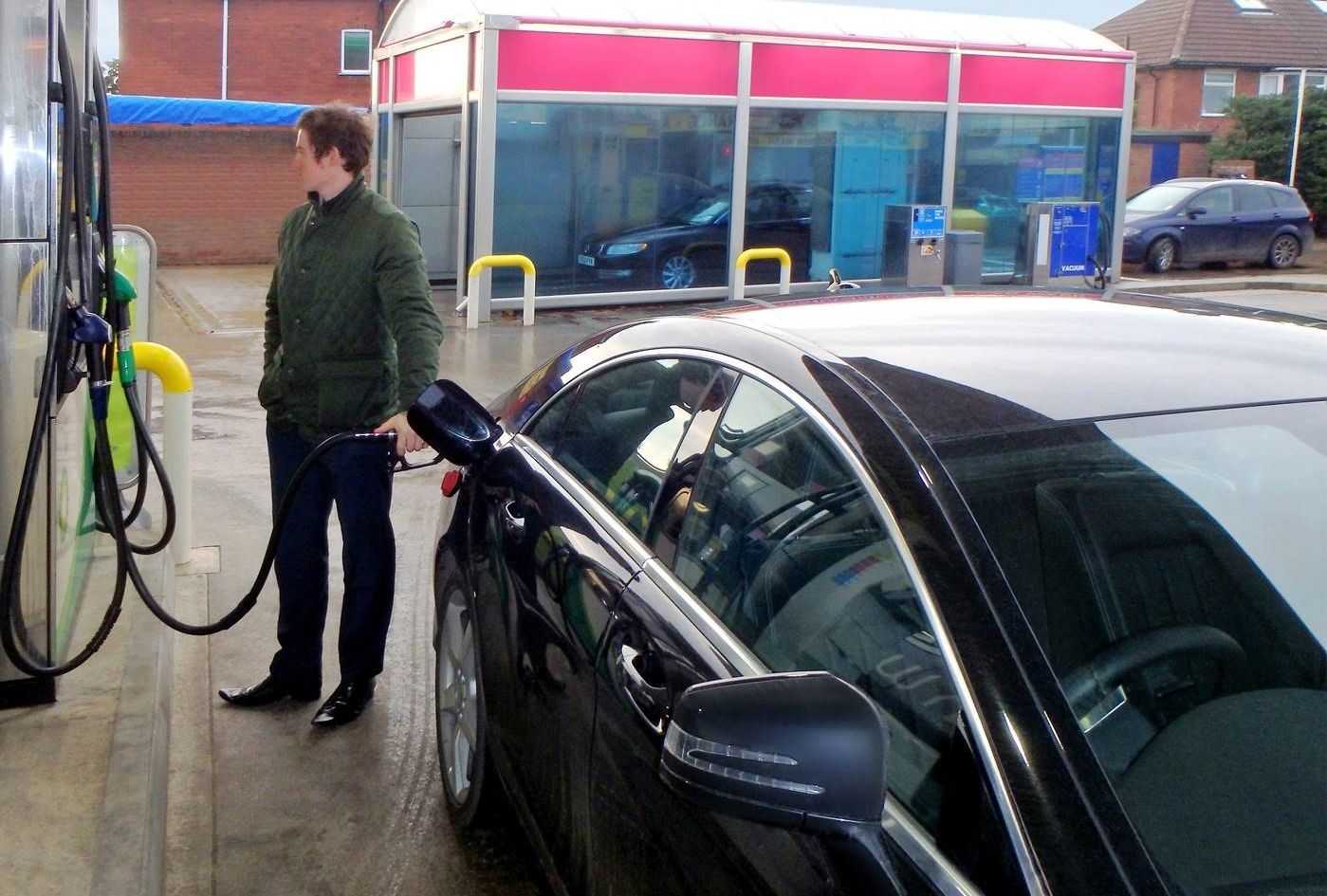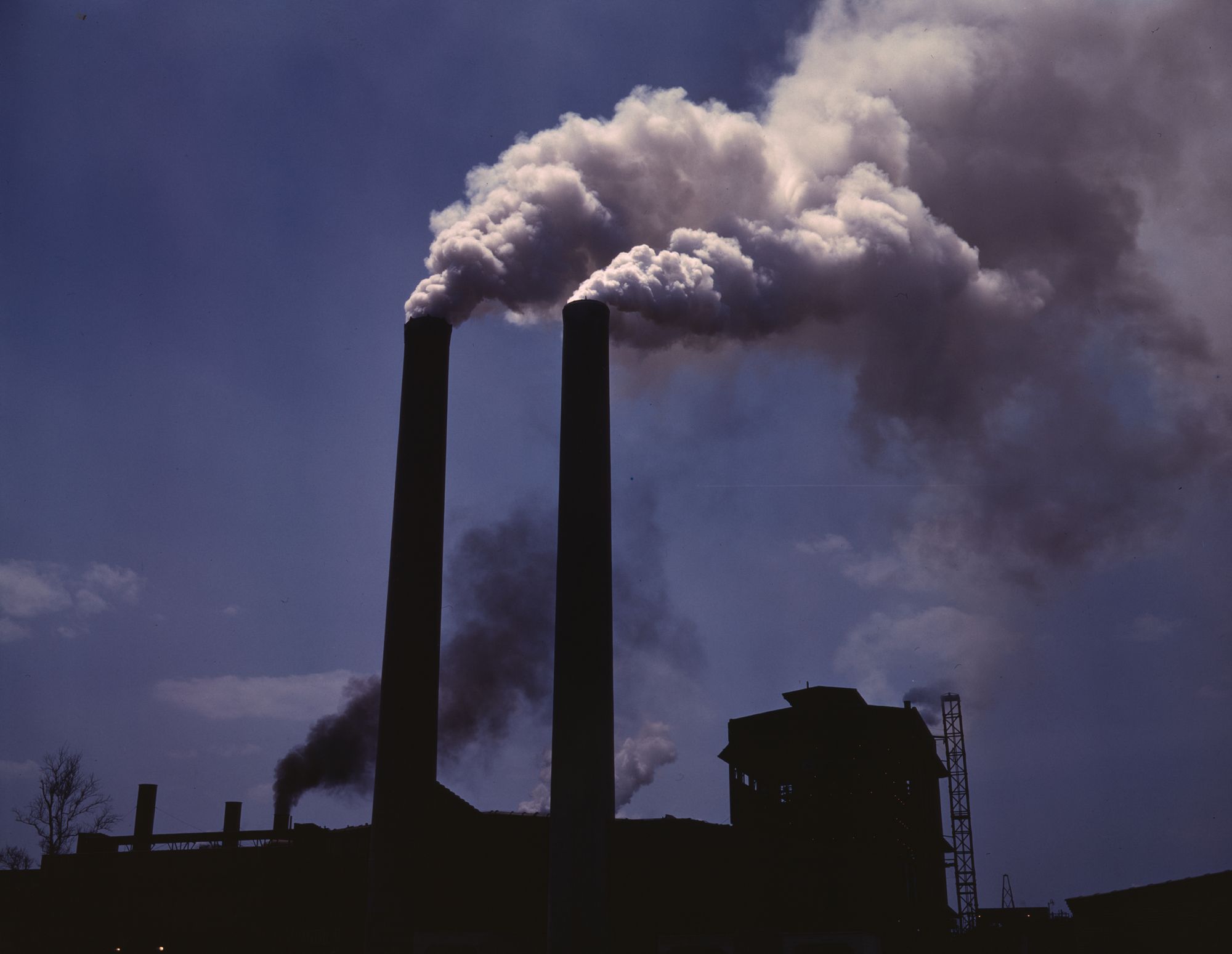As I'm sure many of you've heard, the U.K. wants to ban the sale of petrol and diesel vehicles by the year 2040. According to the British government, the proposed ban is supposed to lower air pollution and save the penguins or something. I'm sorry, but this is total nonsense. The fact of the matter is, switching from diesel and petrol-fueled vehicles will, at best, do nothing. It is true that electric cars are more efficient than petrol and diesel-fueled vehicles, and they produce fewer emissions post-production. But by switching from petrol and diesel cars to electric cars, you are relying more on the nation's power grid.
The British government hasn't released full year statistics regarding energy production and consumption since 2015, and as a result, these figures may or may not be totally accurate. These figures were taken from the 2016 press release of U.K. Energy Statistics for 2015 and Q4 2015 . According to this document, the majority of energy produced in the U.K. comes from non-renewable resources. Natural gas seems to be the energy source of choice, accounting for the most electricity generated at 29.5 percent. Renewable energy sources account for 24.7 percent, nuclear for 20.8 percent, coal for 22.6 percent, and oil and other sources for 2.4 percent.
WARNING: BORING MATH STUFF AHEAD
Focusing on natural gas, 99.8 tWh (terawatt hours) of energy were produced for the year 2015. According to the U.S. Energy Information Administration, 117 pounds of carbon dioxide is released per million BTUs of energy produced from natural gas . If you convert the 99.8 tWh into BTUs, you get the simplified expression of (3.4053e+14). Now, if you divide this by one million, you come to 340,530,000. When you multiply this by 117, you get 39,842,010,000. So, a staggering 39.8 BILLION pounds of carbon dioxide produced by the use of natural gas as energy in the U.K. in 2015 alone.
The use of natural gas as energy has other byproducts, too. The extraction of natural gas causes methane to leak into the atmosphere. When combusted, sulfur and mercury are released, though in small amounts. Furthermore, the burning of natural gas produces certain nitrogen oxides, which are a basis for the formation of smog .
Now onto coal. In 2015, 76.3 tWh of energy was produced from coal. According to the EIA, the least energetic type of coal creates 205.7 pounds of coal per million BTUs. When you convert 76.3 tWh into BTUs, you get the expression (2.6035e+14). When you divide that by one million, you get the figure 260,350,000. Multiply that by 205.7, and you find that 53,553,995,000 pounds of carbon dioxide were produced by coal energy in the U.K. in 2015.
Given that oil only makes up 2.4 percent of energy sources used in the U.K., I haven't bothered putting in its figures. And as nuclear power really doesn't produce much carbon dioxide, and most renewable sources don't either, so we'll skip over them.
For the entire year of 2015, 12.1 million metric tonnes of petrol were used in the U.K. . When you convert this to U.S. gallons, you get 45,803,482,780 gallons. According to the EIA, a U.S. gallon of petrol produces 157.2 pounds of carbon dioxide per million BTUs . A gallon of gasoline has 33.7 kWh of energy. When you convert 33.7 kWh into BTUs, you get 114,989.2 BTUs. Multiply the latter figure by 45,803,482,780, and you get the expression (5.2669058e+15). Divide this by a million, and you get 5,266,905,842.09. Multiply this by 157.2, and you find that a staggering 827,957,598,376 pounds of carbon dioxide were produced in 2015 by the use of petrol-fueled vehicles in the U.K. That's 827 billion pounds.
It gets even worse with diesel-fueled vehicles. In the U.K. in 2015, 23.7 million tonnes of diesel were consumed . When converted to U.S. gallons, you find that 89,823,000,000 gallons of diesel were consumed in the U.K. According to the EIA, with every million BTU of diesel used, 161.3 pounds of carbon dioxide is exerted . A gallon of diesel has 139,000 BTUs . When you multiply 89,823,000,000 by the latter figure, you get the expression (1.2485397e+16). Divide that by a million, and you get 12,485,397,000. Multiply that by 161.3, and you find that a staggering 2,013,894,536,100 pounds of carbon dioxide were produced as a result of diesel use in the U.K. Yep, 2 trillion pounds.
TL;DR: BORING MATH, BLAH BLAH BLAH.
As you can see, the use of traditionally fueled vehicles is very detrimental to the environment, with petrol and diesel accounting for a whopping 2,841,852,134,476 pounds of carbon dioxide produced in 2015.
If you're a boring vegan who loathes cars, on the surface it makes sense to eradicate petrol and diesel-fueled vehicles. I mean, that is a lot of pollution. I wouldn't be too sure, however.
Let's say, at some point, all of the cars in the U.K. are electric. That reduces the nation's dependency on petrol and diesel to near zero, but drastically increases its dependency on electricity. So, Britain will have to ramp up its energy production. Unless clean energy sources are brought to the forefront, and natural gas and coal energy are phased out, natural gas and coal usage will increase drastically, which will increase carbon dioxide output. In theory, the amount of carbon dioxide produced by electricity production for electric vehicles will, at the very least, match the amount that would have been produced by the use of petrol or diesel.
FINAL WORDS
I do not see how totally banning the sale of cars fueled by petrol or diesel will do any good to the environment. I'm no scientist, but it doesn't take one to realize that this is complete nonsense.
REFERENCES
. UK Energy Statistics, 2015 & Q4 2015. Gov.uk
. How much carbon dioxide is produced when different fuels are burned? Energy Information Administration.
(See the eighth column in the center chart)
How much carbon dioxide is produced when different fuels are burned? - FAQ - U.S. Energy Information Administration (EIA)
Energy Information Administration - EIA - Official Energy Statistics from the U.S. Government
. Environmental Impacts of Natural Gas. Union of Concerned Scientists.
Union of Concerned Scientists
Environmental Impacts of Natural Gas
This comprehensive details the potential environmental impacts of natural gas use and extraction, including its effects on water supplies, global warming emissions, air pollution, and wildlife.
. Fuel Consumption (ENVO1). GOV.UK.
Fuel Consumption (ENV01) - GOV.UK
Fuel consumption tables, produced by Department for Transport
. How much carbon dioxide is produced when different fuels are burned? Energy Information Administration. (See the sixth column in the center chart)
How much carbon dioxide is produced when different fuels are burned? - FAQ - U.S. Energy Information Administration (EIA)
Energy Information Administration - EIA - Official Energy Statistics from the U.S. Government
. Fuel Consumption (ENVO1). GOV.UK.
Fuel Consumption (ENV01) - GOV.UK
Fuel consumption tables, produced by Department for Transport
. Energy Content in Common Energy Sources. EngineeringToolbox.com.
Energy Content in Some Common Energy Sources
Some common heating fuels and their energy content



